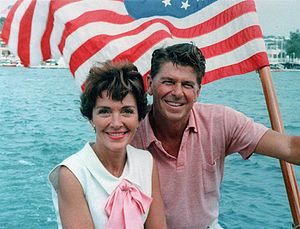It’s an interesting world we live in. “Show No Fear” and “Take No Prisoners” form the budget bargaining approach we get from the present Speaker of the House – John Boehner – who also cries at the drop of his hat.
Is the ability to evidence toughness and vulnerability in style? Are emotions the new black?
Boehner and emotions were top of mind on the way to re-listening to Brene Brown’s terrific TED talk The Power of Vulnerability until I sidetracked onto David Brooks TED piece titled The Social Animal.
Brooks, if you recall, is the Canadian-born conservative point-of-view political and cultural commentator for the New York Times. He’s what is termed a Main Street conservative, that sort of Republican who holds conservative economic views coupled with a live-and-let live social view that Ronald Reagan promoted and the Christian right and Tea Party have exiled from the GOP.
Reagan, by the way, had a knack for keeping his cool and expressing his emotions. You don’t have to yell and scream to get your point across. You just need to be clear and direct. Reagan showed that you can be tough, and touched, powerful and humbled.
Brooks is neither Mr. Touch nor is he Mr. Feely. Emotions, as he notes, are something he’s not so adept at navigating.
Brooks though surprisingly channels behavioral neurobiologist Antonio Damasio and notes “Emotions are not separate from reason, but they are the foundation of reason because they tell us what to value. Reading and educating your emotion is one of the central activities of wisdom.”
Being able not only to evidence but to talk about your emotions is one of the key things that separates great managers from the merely ho-hum. Caring, perhaps the most human of emotions, is one of the key qualities that researchers Jim Kouzes and Barry Posner identified in their exhaustive work on identifying the most significant qualities in effective leaders.
Turns out that are emotions what makes us human (and not like the Borg or their Google equivalent). Brooks notes, “We are social animals We emerge out of relationships. Attachment to others is critical, engagement with people is a foundation of who we are. Teaming – the ability to work within groups.”
While I don’t coach a lot of execs to cry, I coach a lot of people to be able to talk about what’s going on not just in their head, but their heart, gut, and any other body part that’s speaking up. It helps to be able to authentically say “It makes me pissed when we blow a deadline” as well as say “I’m so proud of you guys for this type of great effort.”
It also helps, as I mentioned to a colleague this morning, to provide a little entré / segue for a whole world unaccustomed to pure, real candor (“Let me cut to the chase; I think this sucks. Here’s why.“)
You’re more powerful when you bring the entire authentic you to your work (and the rest of your life too, by the way). It helps to do with heart, humor, and caring – and no, you don’t have to cry.
You just have to be you.
Life Back West is an occasional set of writings focused on ways people, teams and organizations can be both more effective (doing the right thing) and more efficient (doing the right thing well). More about executive, career and team / leadership coaching services can be found at the “About J. Mike Smith and Back West, Inc.” sidebar or the “Hire Me” tab above. You can also read an online interview with me at WhoHub, as well as participate in my learning community courtesy of KnowledgeCrush.


